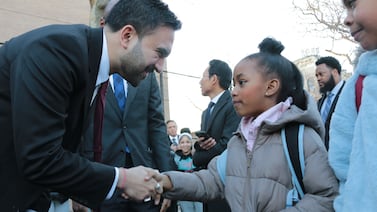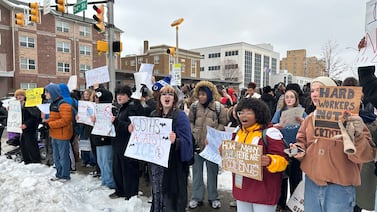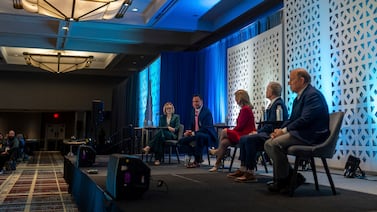Sign up for Chalkbeat Tennessee’s free newsletter to keep up with statewide education policy and Memphis-Shelby County Schools.
A new Tennessee school year is well underway, and some students may have returned to classrooms with new cellphone bans in place.
Tennessee lawmakers this spring unanimously passed a bill banning the use of “wireless communication devices” during the school day, and the policy could include technology such as cellphones, smart watches, and tablets during the school day.
But the law allowed local boards of education to hash out their own policy details, meaning tech bans may vary widely across the state.
In Memphis, students are simply asked to turn their phones off and keep them “out of sight” during school hours, a policy that existed before the state ban. Some schools in Nashville had already been implementing physical restrictions, like the Yondr pouches that use a magnetic locking mechanism to keep personal devices secure. Proposed disciplinary measures have sparked heated school board debates in Hamilton County.
Chalkbeat Tennessee wants to learn more about how the new cellphone ban is playing out in schools across the state.
Have you seen any benefits in the classroom and school hallways? Do you have any concerns about implementation, or does it already align with preexisting school policies?
Let us know what you think about the cellphone ban by filling out the form below. If you are having trouble viewing the form, go here.






